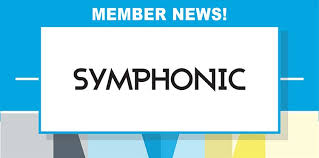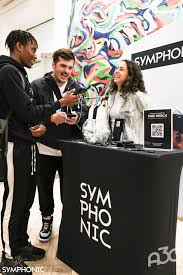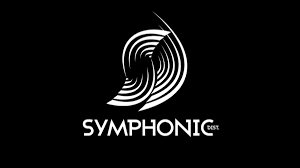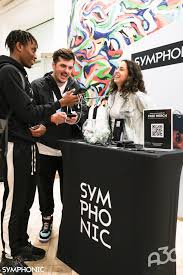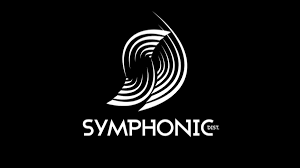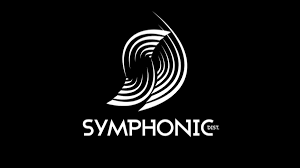If you’ve heard that Symphonic Distribution offers more than just automated uploads and actually supports artists with real services—playlist pitching, sync licensing, royalty management, and more—you’re probably thinking about applying.
But then the question hits:
Does anybody get rejected from Symphonic Distribution?
The short answer is yes—Symphonic doesn’t accept everyone. It’s a curated platform, which means they carefully review applications to determine whether a potential artist, label, or catalog fits their quality standards and business model.
In this article, we’ll break down how Symphonic evaluates applicants, what can get you rejected, and how to improve your chances of approval if you’re serious about distributing your music through a professional-grade partner.
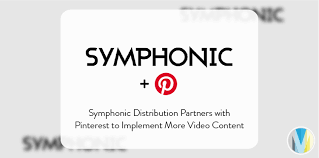
What Is Symphonic Distribution and Why Is It Selective?
Symphonic Distribution is a U.S.-based digital music distributor that services independent artists, labels, DJs, and music brands around the world. Unlike mass-access distributors like DistroKid or TuneCore, Symphonic follows a review-based application process.
That means not everyone gets in.
But why?
Because Symphonic doesn’t aim to be the biggest distributor. Instead, it focuses on working with creators who are:
Consistently releasing music
Treating their catalog like a business
Looking to scale with strategic tools (sync, marketing, publishing)
Their selective approach allows them to:
Provide real human support
Deliver more targeted playlist and sync pitching
Avoid platform abuse (e.g., copyright violations, low-quality uploads)
Build long-term partnerships instead of short-term uploads
So yes, people do get rejected from Symphonic Distribution, especially those who apply without a strategy, portfolio, or real momentum.
What Happens During the Symphonic Application Process?
Let’s walk through what actually happens when you apply.
Step 1: Fill Out the Online Form
Visit symphonic.com and click "Apply". You’ll be asked to provide:
Artist name or label name
Streaming and social media links (Spotify, YouTube, Instagram, etc.)
Genre and recent release details
A short artist bio and your goals
Step 2: Internal Review by Symphonic’s A&R or Label Team
They’ll evaluate:
Streaming traction on platforms like Spotify or Apple Music
Release history (have you dropped music consistently?)
Artwork and branding (professionalism matters)
Genre fit (they're strong in electronic, hip-hop, Latin, indie, etc.)
Potential for monetization (e.g., sync, YouTube, publishing)
Step 3: Response Within a Few Days
If accepted, you'll receive:
Access to the SymphonicMS dashboard
Details on revenue splits and services
A welcome email or meeting (for high-volume labels)
If rejected, you may not get a detailed explanation—but rejection is often not permanent.
Why Do Some Artists Get Rejected from Symphonic?
Let’s explore the most common reasons why people get rejected from Symphonic Distribution.
1. Lack of Professionalism
Symphonic wants to see that you take your music seriously. If your:
Social media is inactive
Spotify has no releases
Website is broken or nonexistent
You’re probably not ready yet.
2. Low-Quality Production or Metadata
Symphonic reviews audio, artwork, and metadata. If your music:
Has poor mixing/mastering
Lacks ISRCs, credits, or artwork
Looks DIY to the point of unreadable
They may reject your application.
3. No Proven Track Record
Symphonic isn't for first-timers. They look for artists or labels with:
At least one released EP or album
Moderate to strong engagement on streaming platforms
Consistent branding and marketing
If you're brand new, it’s not a fit—yet.
4. Niche Genre Without Market Alignment
Symphonic is strong in:
Electronic/Dance
Hip-Hop/Rap
Indie/Alternative
Reggaeton/Latin Urban
If your genre falls completely outside these (like traditional folk or spoken word), your music might not align with their distribution ecosystem.
5. Copyright or Content Issues
They take compliance seriously. If your catalog includes:
Unlicensed remixes
Bootlegs
Sample-heavy tracks without clearance
You’ll likely be denied access due to legal liability.
What to Do If You Get Rejected by Symphonic
Rejection isn’t the end of the road. Here’s how to bounce back:
1. Improve Your Catalog and Reapply Later
Work on:
Better audio quality
More consistent release schedule
Press features or live show experience
Then reapply in 3–6 months.
2. Use Another Distributor First
Start with an open-access distributor like:
DistroKid (good for frequent releases)
Amuse (free, mobile-friendly)
CD Baby (offers publishing admin)
Build traction and come back to Symphonic with real data.
3. Reach Out Directly (If You Have a Case)
If you’re borderline or have a unique angle (like a sync catalog, event brand, or label collective), send a professional follow-up to info@symdistro.com with streaming stats and your pitch.
Does Symphonic Rejection Mean You’re Not a Good Artist?
Absolutely not.
Getting rejected from Symphonic Distribution doesn’t mean your music isn’t good—it just means you’re not the right fit for their model right now. Their business is built around partnerships, not uploads. If you treat your career like a business, they’ll be ready when you are.
FAQs: Does Anybody Get Rejected from Symphonic Distribution?
Is Symphonic Distribution invite-only?
No, but it is application-based. You must apply and get approved before uploading music.
How long does it take to hear back?
Usually within 3–5 business days, though high-volume periods may take longer.
Can I reapply if I was rejected?
Yes. You can improve your profile and reapply after a few months. Many successful artists were initially turned down.
Does Symphonic explain why you got rejected?
Not always. They don’t guarantee feedback, but you can reach out and request a general overview.
Are there alternatives to Symphonic if rejected?
Yes—platforms like DistroKid, CD Baby, and Ditto allow open distribution and are great for building experience.
Final Thoughts: Quality Gatekeeping Is Part of the Value
So, does anybody get rejected from Symphonic Distribution? Yes—and that’s actually a good thing.
Their selectivity ensures that the artists on their platform receive real, focused attention, not just another upload in the pipeline. If you’re not accepted, take it as a challenge—not a defeat. Use the time to level up your strategy, presentation, and consistency.
Because when you’re ready, Symphonic Distribution will be, too.
Learn more about AI MUSIC

